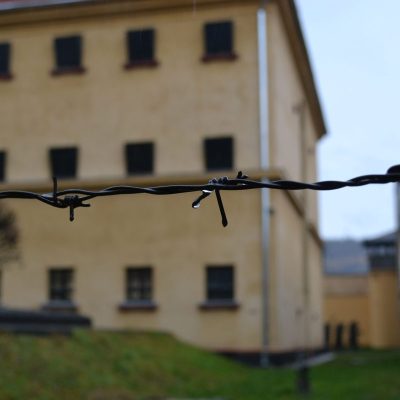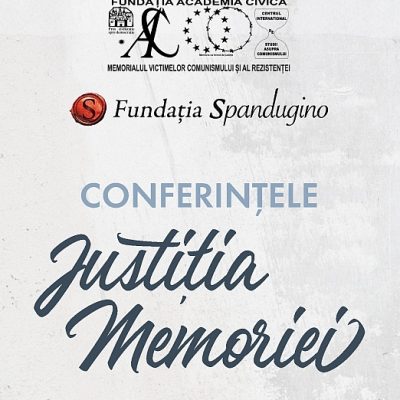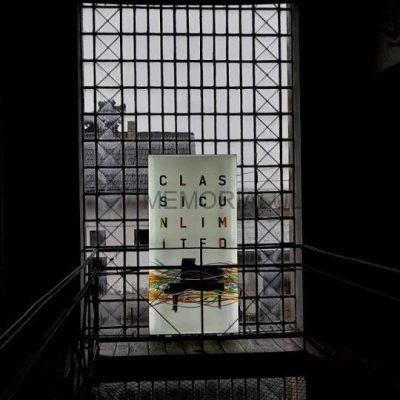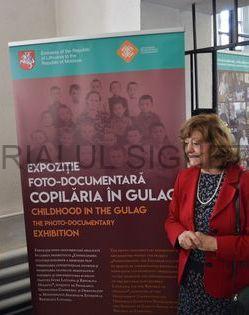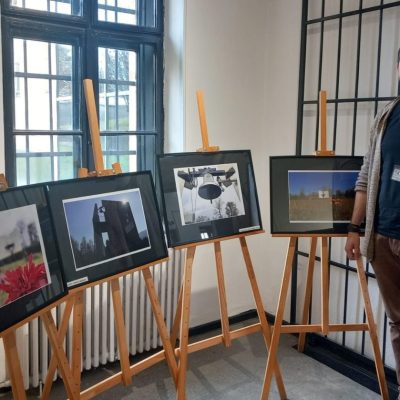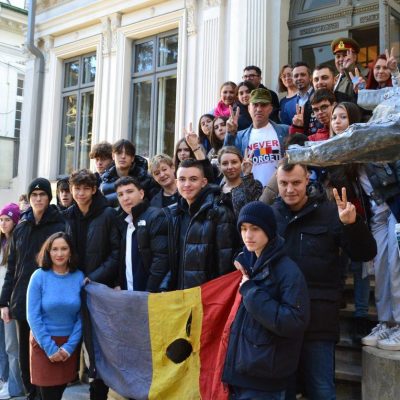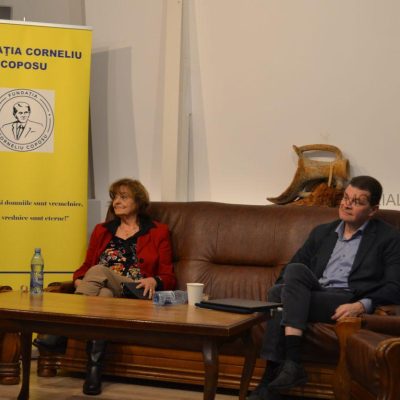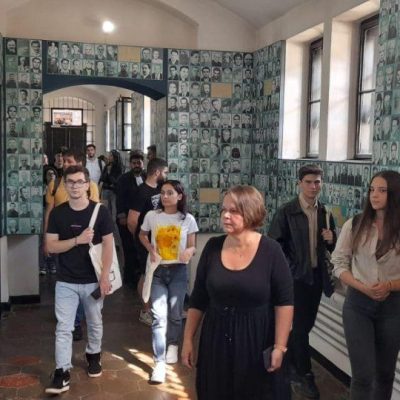On 20-21 April 2021, the Civic Academy Foundation and the Memorial to the Victims of Communism and of the Resistance organized the workshop Learning from the History of the 20th Century. Youngsters from the Present meeting Youngsters from the Past.
9th and 10th grade students of the Dragoș Vodă National High School in Sighetu Marmației, coordinated by teacher Claudia Dura, learned during a two-day event about the life stories of Antonia Laghi and Carlo Flamigni from Italy, Jarmila Kročková from the Czech Republic, Senad Vrana from Bosnia and Herzegovina and Voicai Potârcă from Romania. Their childhood was marked by the wars and totalitarian regimes of the 20th century.
The Fascist regime in Italy, for instance, left its mark on Antonia Laghi’s childhood and youth. Born in 1921 to a poor family, Antonia Laghi was expelled from school in third grade for refusing to wear the Little Italian uniform, which was mandatory during Benito Mussolini’s regime. Unable to pursue further education, Antonia took a job in a factory at age 12 to help support her family. Outraged by the injustices of the Fascist regime during the Second World War, in 1944-1945, Antonia Laghi became a messenger for the partisans in Italy, supplying them with arms, food and clothing and supporting their fight for the liberation of Italy.
Carlo Flamigni was born in Forli, Italy, in 1933. Growing up, he was a witness to the Second World War and the Fascist regime in Italy as well. Encounters with the Black Brigades, German army trucks carrying hungry and thirsty prisoners of war, or with the hanged bodies of Italian partisans in the streets of Forli are but just a few instances that left their mark on Carlo’s childhood, but also on his adult life, with anti-fascism taking centre stage in every life choice he made, both in his profession as a physician, at which he excelled, and within his social, civic and institutional commitments.
Jarmila Kročková (born Fuchsová) first saw the light of day in 1947 in Ostrava-Vítkovice, Czechoslovakia. In 1951, Vítězslav Fuchsa, her father, was arrested by the Czechoslovak Communist authorities and sentenced to 15 years in prison for high treason, while her mother, Emilie Fuschová, was detained and imprisoned for two years with no sentence. With both parents arrested, three-year-old Jarmila and her six-year-old brother Milan ended up in the care of a childless family, which they left eight months later, when they were given into the custody of their aunts, after their mother had gone on hunger strike while in prison. Jarmila lived with her aunt in Košice until turning 6. Jarmilla’s father was released from prison in 1956 due to ill health. By 1963, when Vítězslav Fuchsa was rehabilitated, Jarmilla and her family’s life had been severely marked by injustice and material deprivation.
Voica Potârcă was born in 1943 in Bucharest. As a daughter to Virgil Potârcă, a former minister during the interwar period, Voica’s problems began to arise in the early years of the Communist regime in Romania. In 1948, the Potârcă family was evicted from their home; in May 1950, Virgil Potârcă was arrested, and in April 1952, Dorina Potârcă, Virgil’s wife, was arrested as well. Left without parents, Voica, aged 9, and her brother Tudor, aged 13, were taken in by their grandparents. Dorina Potârcă was released after two years of detention without sentencing, while Virgil Potârcă died in Sighet prison in 1954. Troubles in childhood took their toll on Voica Potârcă. She confesses: ‘Childhood and adolescence taught me to be even less daring, to be submissive in order to survive, without any dreams, without any ambitions, with the sole wish to lead a life free of conflict and to be as inconspicuous as possible.’
Senad Vrana was born in 1975 in Sarajevo. During the Bosnian war of 1992-1995, Senad Vrana’s was a constant struggle for survival. In 1992, aged 17, he removed the first explosive device found close to where he and his family had taken shelter. Despite having later studied to become a literature teacher, his wartime experiences took their toll on his profession in that Senad Vrana nowadays works as a bomb disposal technician.
Students discussed about these life experiences with witnesses from the Czech Republic and Romania, Jarmila Kročková and Voica Potârcă respectively; with Marisa Fabbri, author of the book Non ho mai avuto una bambola. Ricordi di una staffetta partigiana, dedicated to Antonia Laghi; with Marina Mengarelli Flamigni, sociologist, Carlo Flamigni’s wife, and Haris Čalkić from the URBAN Association in Bosnia and Herzegovina.
The meeting was organised and moderated by Virginia Ion, scientific secretary, and Andrea Dobeș PhD, museographer. The participants also took virtual tour of the Sighet Memorial under the guidance of Norbert Kondrat, museum educator. The entire event took place online on the Zoom platform.
 The event is part of the project Behind Closed Doors. Growing up under Totalitarian Regimes / Growing up in Wartime, an EU funded project within the Europe for Citizens – European Remembrance programme, which was implemented by a partnership between the URBAN Association (Bosnia and Herzegovina) as the lead partner, the Civic Academy Foundation – Memorial to the Victims of Communism and of the Resistance (Romania), the ATRIUM Association (Italy) and Post Bellum (Czech Republic).
The event is part of the project Behind Closed Doors. Growing up under Totalitarian Regimes / Growing up in Wartime, an EU funded project within the Europe for Citizens – European Remembrance programme, which was implemented by a partnership between the URBAN Association (Bosnia and Herzegovina) as the lead partner, the Civic Academy Foundation – Memorial to the Victims of Communism and of the Resistance (Romania), the ATRIUM Association (Italy) and Post Bellum (Czech Republic).























